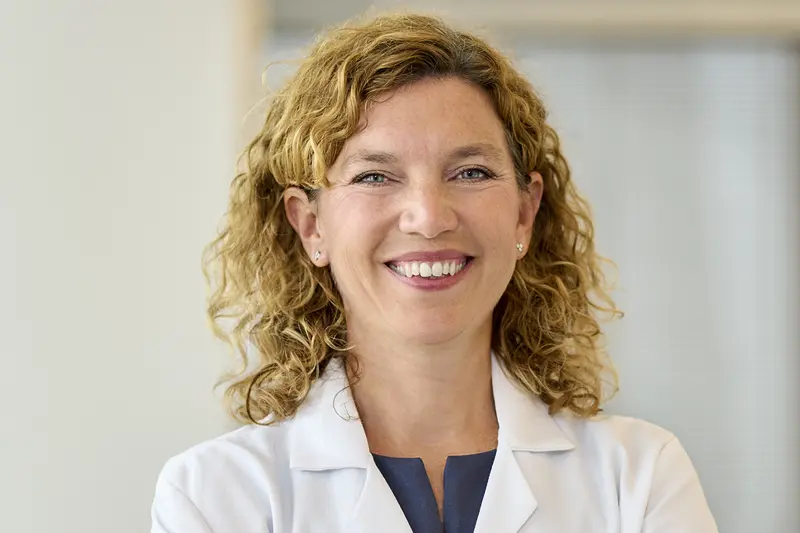I like that it’s such a diverse specialty where you can do so many things. We are primary care providers. We are surgeons. We do a lot of mental health care. One day I’m in the office, one day I’m on the labor floor, and one day I’m in the operating room. We treat a wide variety of patients and medical conditions.
Why was it important for you to include adolescents within the scope of patients you care for?
My interest in pediatric and adolescent gynecology specifically came about when I was new in practice and wound up seeing a lot of young people. I quickly realized how much I liked it and wanted adolescents to be a focus of my practice. I learned as much as I could about treating this demographic and was excited when the American Board of Obstetrics and Gynecology (ABOG) decided to offer a focus practice designation in pediatric and adolescent gynecology. I have this designation and am so happy ABOG chose to recognize this important part of comprehensive health care for young people.
My goal is for my patients to include me in the circle of trusted adults with whom they feel comfortable. I see the benefit when parents give their child the ability to have a private relationship with a physician or health care provider, so they aren’t only getting information from their friends or the internet. There is good information online, and health care providers can help people find it and dispel some of the myths out there; that’s something I focus on addressing. I steer my adolescent patients toward web sites that are teen-friendly but also have evidence-based, accurate, and correct information.
You’ve authored papers on a range of clinical research and professional topics. What’s something particularly memorable that you’ve written about?
From a clinical perspective, I worked on a study with a medical student about contraceptive use among adolescents going through cancer therapy, and we found that a lot of physicians caring for these patients weren’t asking them about their birth control needs — only about a third of patients were receiving sexual health counseling. Adolescents in general face significant barriers in accessing reproductive health care, and we were able to identify an opportunity to improve outcomes for a subset of adolescents facing particular health challenges. This study exemplified something I have seen in practice — that just asking the questions and starting the conversations about what some consider sensitive topics has potentially huge benefits, particularly for populations who face barriers within the health care system.
On the professional side, inclusivity for physicians with disabilities and chronic medical conditions is a topic that is personally meaningful for me. I am a breast cancer survivor — I’ve been cancer-free for nine years — so I know it can be a challenge to decide whether to discuss your own health issues. Several years ago, one of my mentees and I wrote an editorial commentary about it and were guests on a podcast where we discussed our experiences as a medical educator and a trainee. We talked about the impact of disclosing personal health information while reflecting on our individual stories. Fortunately, there is a lot of work that's being done to advocate for doctors with chronic medical conditions and disabilities, adding to the evidence that the more diverse the health care workforce is, the better the care we can provide collectively to diverse patient populations.
What drew you to working at NewYork-Presbyterian and Weill Cornell Medicine?
The diversity in New York carries over to the diversity at NewYork-Presbyterian — it’s really second to none. I love that NYP values a diverse workforce, because I wholeheartedly subscribe to the philosophy that a wide range of thoughts and perspectives make up a better team.
One of the other big reasons why I came here was because the Chair of our department, Dr. Laura Riley, has a vision for caring for women throughout their lifespan. I liked that she values the clinical side and individualized patient care, but also sees the big picture and thinks about how research, innovation, and system changes can provide the best care for our patients.
What inspires you as a physician? What keeps you going when the job gets stressful?
Seeing the energy, enthusiasm, and commitment of the next generation of doctors is part of what keeps me going. Especially when it comes to the attack on reproductive rights, I see that the young people in our field are tirelessly committed to providing the full scope of evidence-based reproductive health care to all patients. Adolescents in particular face access issues, and while the FDA’s approval of the first U.S. over-the-counter birth control pill will have an important and positive impact, the fact that access is being devalued in some places is still quite terrifying to me. But I feel energized and inspired by the advocacy of so many in OB-GYN, particularly those in training and new in practice. I think that's why a lot of people are attracted to our field, because to be an OB-GYN is to be an advocate for your patient.





